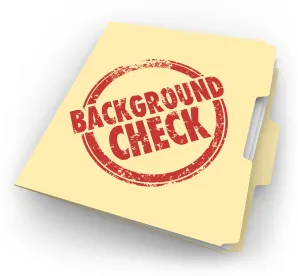In this episode of The Proskauer Brief, senior counsel Harris Mufson and associate Michelle Gyves discuss the main laws governing background checks for employers. We will discuss how employers can utilize the federal Fair Credit Reporting Act (FCRA) to conduct pre-employment background checks on candidates. In addition to FCRA, we also discuss how “ban the box” and credit check laws play a role in screening potential employees. Be sure to tune in for more information on how these laws can affect both employers and candidates.
Harris Mufson: Hello, welcome to the Proskauer Brief, Hot Topics on Labor and Employment Law. I’m Harris Mufson and on today’s episode I’m joined by Shelly Gyves and we’re going to talk about background checks. Shelly, are you ready?
Shelly Gyves: Yeah.
Harris Mufson: Okay.
Shelly Gyves: Let’s go.
Harris Mufson: So, can you talk a little bit about the main laws governing background checks for employers?
Shelly Gyves: Sure, so, there are really a few different bodies of law that employers should be thinking about when conducting pre-employment background checks on candidates for employment. First, is the federal Fair Credit Reporting Act, which I will refer to as FCRA and the State mini FCRA’s, which are analogs to that law. And what FCRA really does, it’s more of a procedural requirement as opposed to substantive limitations, and it really dictates the disclosure and authorization that we need to have in advance of conducting a background check and it also prescribes a process that needs to be undertaken if you are going to take adverse action on the basis of information obtained for a background check.
Harris Mufson: And where do employers obtain the forms, the requisite forms that are required under the, under FCRA.
Shelly Gyves: So, there’s a number of ways to do it. They could create their own, but most background screening vendors will have forms that employers can use as a starting point. We at Proskauer also have forms that employers can use. Often, as I said, the background screening vendors will have forms that will be preloaded into their online system, though we do still recommend that employers take a look at those and understand what’s in these and make sure that their legal counsel reviews them to make sure that they are comfortable they are compliant with FCRA and with the various state analogues, largely because from experience, even if the vendor does provide the forms, the employer remains liable for any defects in the forms. So, the employer is still liable for providing a complaints form to a candidate, getting the requisition authorization, et cetera. And so, you want to make sure that even if the vendor has provided the forms that you are comfortable that they are compliant.
Harris Mufson: So, in addition to FCRA and the mini FCRA laws that govern employers. Can you talk a little bit about the ban the box laws that have been enacted around the country?
Shelly Gyves: Sure. Ban the box laws and other restrictions on criminal background checks are a very hot topic in the background check area over the last several years. There is an increasing number of States and localities that have enacted these types of laws. And ban the box derived from the box that used to very often appear on an employment application that would say, you know, check here if you have a criminal background. And so, the goal of these laws is if you delay the point in the application process at which an employer can ask a candidate about his or her criminal background with the goal of having employers get to know a candidates merits and skills and qualifications first before it takes into account criminal background information, you know, that may be a demerit, if you will. In some cases, you know, you can ask about criminal background under these laws as soon as the first interview or, you know, at some point kind of immediately after the application, but the most stringent laws, which I think are becoming increasingly common don’t allow you to inquire about or consider a candidate’s criminal background until after they have received a conditional offer of employment. So, that’s the case in New York City, for example, it’s the case in Los Angeles. California as a state has recently enacted a ban the box law that requires delaying that inquiry until post conditional offer as well.
Harris Mufson: Can you talk a little bit about if an employer has a circumstance where, and say they are in New York City where there are one of the jurisdictions where they are particularly stringent requirements concerning criminal background checks. If an employer has a concern about a criminal background check, post offer, and is considering revoking the offer based on the results of that criminal background check, what’s the sort of analysis that needs to take place?
Shelly Gyves: Right, so, under FCRA any time that you are considering taking adverse employment action on the basis of any kind of background check, you need to send what is referred to as a pre-adverse action notice that lets the person know: I am considering taking information at least partially based on the information contained in this background check report and provides a copy of the report and gives them a reasonable period of time to respond. So, that’s kind of the Federal law requirement that applies no matter what. In New York, additionally, if that adverse action or proposed adverse action or revocation of the offer, as you said, is based on a candidate’s criminal background then you also have to do what is referred to as an Article 23 Analysis under the New York State Correction Law, which basically requires you to take into account account factors like the nature of the position or the job that the person is applying for, the nature and seriousness of the offense, how long ago the offense were; the person’s age at the time of the offense, relevant evidence of rehabilitation. And basically to take all of those factors into account to make a determination as to whether there is a relationship between the convection and the specific position that is being sought or if the convictions are such that hiring the person would present an unreasonable risk to people or property. That’s been a requirement for a long time under New York State Law but back in 2015, New York City additionally enacted the Fair Chance Act, which is the ban the box law, that requires that you conduct that analysis but then you put it in writing and you give it to the candidate and give them an opportunity to respond and provide additional information, and it’s a reasonable period of time, the Statute says that we can be no less then three days, so then we typically recommend to also comply with the FCRA reasonable period of time, giving at least a week for a candidate to provide additional information. And that could be one of two things. It could be information showing that this is a case of mistaken identify and, in fact, this conviction that you have uncovers is not this person’s but it could also be additional evidence of rehabilitation. Some people may submit references from prior employers, references, perhaps, from a parole officer or someone along those lines to try to tip the scales. In New York City, you have to hold the job open for that period of time and then consider any additional information before making a final decision to move forward with confirming the offer or revoking it. One thing that’s interesting, Los Angeles, subsequent to New York City passed their own ban the box law with similar requirements. You have to do a similar individualized assessment and they actually require that if the candidate does provide additional information that you have to do the written assessment again. So, you have to provide that second time if you are still considering moving forward with the revocation to show that you have taken that additional information into account and that you still reached the same conclusion that the offer should be revoked.
Harris Mufson: So, in addition to FCRA and the ban the box laws, I think the third area, in terms of background checks, are credit check laws, and can you talk a little bit about those?
Shelly Gyves: Sure. You’re right, credit check bans are also becoming increasingly common. These typically provide that employers are prohibited from conducting credit checks, looking at a person’s credit accounts debts, bankruptcy history, things along those lines, for employment purposes, unless some sort of specific exception applies. So, these sometimes have been enacted on a state level, sometimes on a city level and New York City has one of these laws that was passed and came in to effect around the same time as the Fair Chance Act, and effectively the exceptions vary by location but, you know, always if a credit check is required by some other law, federal law or state law or regulation that a credit check can obviously be conducted in accordance with these laws, that typically will only be the case for financial industry employers that may be required for certain regulated positions to inquire about a person’s bankruptcy history or along those lines. But then, there’s also exceptions for people who have signatory authority over large large sums of money either of the employer or clients. In California, for example, most managerial positions can be subject to a credit check, although New York City is more restrictive and doesn’t have a general ban for managers. So, it’s really a location by location and position by position analysis to figure out whether a credit check is possible for employment purposes. And if an employer is looking to have a single approach throughout the country, then I would say, you would want to look to the New York City law which we have found to be the most restrictive in terms of the exceptions and kind of that, that would be the high water mark that you would want to follow.
Harris Mufson: Thank you, Shelly, for touching on all of the applicable laws concerning background checks. And thank you for all of our listeners joining us on the Proskauer Brief today.



 />i
/>i

